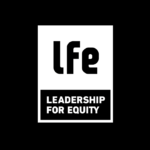Leadership for Skilled Education Foundation, also known as Leadership for Equity or LFE, is a relatively young organisation, but it has made significant strides in improving public education since it was founded in 2015.
LFE’s vision is to strengthen the existing system of public education, because it is the only system capable of delivering education to over 250 million children across the country. Therefore, to ensure that public schools deliver quality education that actually improves student learning and well-being, LFE chose to focus on building effective leadership within various government education departments. It also partners with local and state education bodies to co-create programmes and influence education policies for the better.
Over the years, LFE has run school improvement projects, started teacher development programmes, and created a teacher resource app that now has 1.5 lakh users across India. It supports 120 academic officers at the Maharashtra State Council of Educational Research and Training, and aims to support over 10,000 such officers in multiple states.
So far, LFE’s work has impacted more than 82 lakh students, 40,000 teachers and 1,950 system leaders in 10 government bodies. Its goal is to build the capacity of 10,000 system leaders in at least five states of India.
The project supported by MFE:
Improving access to quality education in Nashik district
The goal of this project is to improve the foundational literacy and numeracy of public school children in Maharashtra’s Nashik district, through interventions for larger systemic reform. Although it is a one-year project for public school education in Maharashtra’s Nashik district, LFE believes it will deliver long-term impact up to 2025.
To begin with, LFE will train district and block-level education officers to improve their knowledge of programme design, M&E, team management and more. It will also help them organise effective Shikshan Parishads at the district and block level. It will then ensure that these officers conduct at least 6 teacher-mentor workshops in Nashik, 8 Shikshan Parishads and two district-level goal-setting conferences with Zilla Parishad officials. It also expects the officers to create 10-15 new learning materials per subject for every grade of school.
As a result of such interventions, LFE expects to see a 15% growth in the knowledge and skill levels of officers and teacher mentors with respect to improving children’s literacy, numeracy, and social and emotional learning. It also wants to see 75% of blocks independently using data to conduct monthly review meetings. At the district level, it aims to see two new education policies created and published, and 3 new NGO/CSR partners signed up to aid in education.
Within three years of this project, one of the main outcomes LFE wishes to see is that 85% parents begin perceiving government schools as imparters of high-quality education. Ultimately, by March 2025, it aims to have 75% of Nashik’s public school students improve their foundational literacy and numeracy and 50% of students rank as “well-adjusted” on a well-being scale. It also aims to see a 10% rise in student enrolment in government schools.


